Locum tenens in the Caribbean: What to know about practicing in the Islands
October 21, 2025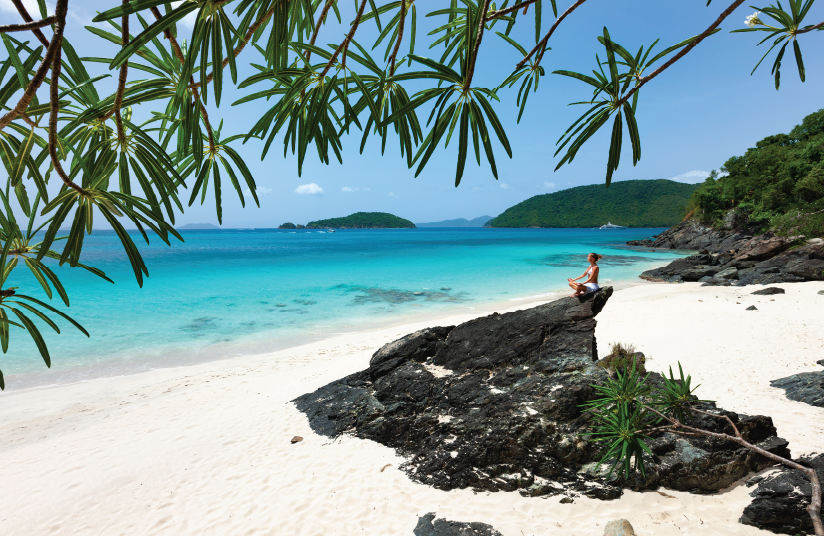
The Caribbean holds a unique appeal for adventurous physicians. For many, working locum tenens assignments in the Caribbean means balancing rewarding clinical work with the slower pace of island life. But it’s not simply a vacation in scrubs. Practicing in this region requires preparation, adaptability, and cultural sensitivity. This guide blends practical advice with firsthand physician stories to help you decide if temporary Caribbean medical jobs are right for you.
Assignments and locations for Caribbean doctor jobs
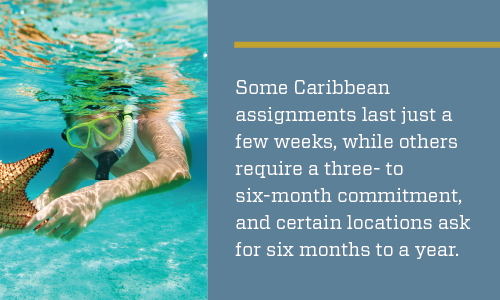
Locums opportunities span the Caribbean, from Bermuda and Grand Cayman to Puerto Rico and the Virgin Islands. These islands often rely on locum physicians because there's a chronic shortage of doctors in the region. Some Caribbean locum assignments last just a few weeks, while others require a commitment of three to six months, and certain locations may ask for a six-month to one-year commitment. Work schedules also vary. Some physicians cover Monday through Friday clinics, while others rotate through 24-hour on-call hospital shifts or staff busy emergency departments.
Licensing, credentialing, and visas for locums in the Caribbean
Licensing and credentialing requirements in the Caribbean vary by location, but you don’t have to navigate them alone. In U.S. territories such as Puerto Rico and the U.S. Virgin Islands, U.S. medical credentials are often accepted with minimal additional documentation. Independent nations may have a few more steps—such as submitting proof of education, CME, or letters of good standing—but nothing you need to worry about handling on your own.
That’s where Global Medical Staffing (GMS) comes in. We take care of the entire process for you—from pre-filling applications to coordinating with licensing boards and hospital credentialing teams. We’ll also guide you through any necessary travel documentation, including visas if required, and ensure your family is covered as well. In many cases, a U.S. passport is all you need to get started.
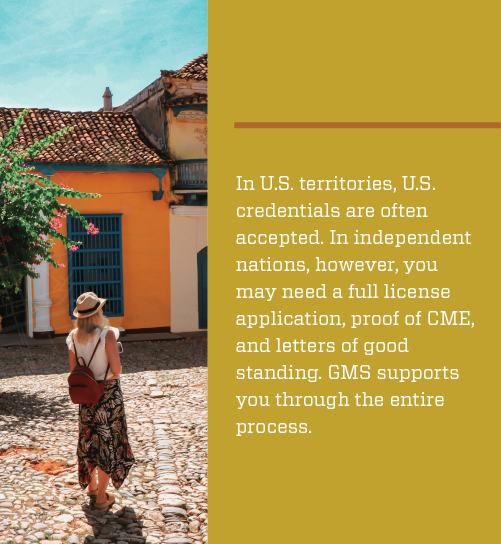
Our goal is to make your transition to an island assignment as smooth and stress-free as possible so you can focus on the adventure ahead.
Pay, benefits, taxes, and cost of living
Caribbean locum tenens work rarely matches U.S. locum pay rates, but the total package often balances out. Most contracts include housing, airfare, transportation, and licensing fees. Many also provide a rental car and cover utilities, reducing out-of-pocket costs.
GMS pays our physicians weekly via direct deposit, and each locum physician receives malpractice insurance, covered either by the facility or GMS.
Taxes in the Caribbean are another consideration. U.S. physicians are still responsible for federal income taxes; some islands add local income tax or withholding. In addition, in island economies, grocery and goods prices are often higher than on the mainland. Pulmonary and critical care physician Dr. Penny Williams explains, “A pint of strawberries might be $7. A loaf of bread is probably $5 or $6. A little peanut butter container might cost $10.” By contrast, as emergency medicine physician Dr. Alan Hodgdon shares: “You can get a coconut for a buck, but you won’t get Cheerios for a buck. The fruits are excellent, papayas and all that stuff.”
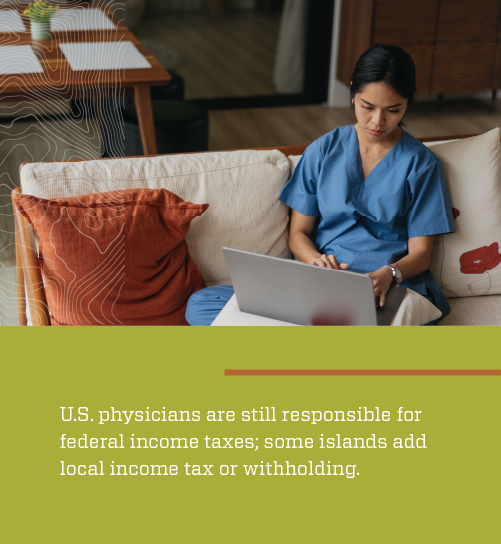
These trade-offs highlight why covered housing, travel, and utilities matter so much.
Locum tenens and taxes: Everything you need to know
The clinical environment for Caribbean medical jobs
The Caribbean’s medical infrastructure can range from modern hospitals to resource-limited facilities. Physicians often adapt to fewer diagnostic tools, limited lab access, or delayed imaging, but many physicians who work Caribbean locums assignments say that is one of the aspects of working in those settings that they actually enjoy because it forces them to be more nimble.
“I’m just realistic about going there,” says Dr. Williams. “I know what I’m getting when I go, and I enjoy going. It’s the type of medicine that you don’t get to practice in the States—you have to be adaptive; you have to make use of the supplies you can find. If you don’t have the equipment to do something, you have to realize you’ve done everything you could.”
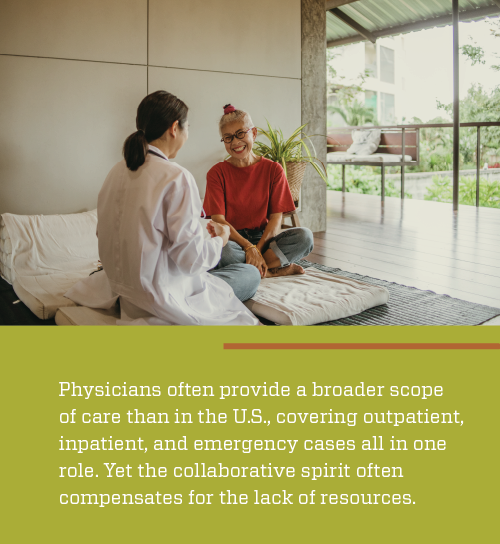
Such challenges require clinical judgment and creativity. Physicians often provide a broader scope of care than at home, encompassing outpatient, inpatient, and emergency cases within a single role. Yet the collaborative spirit often compensates for the lack of resources.
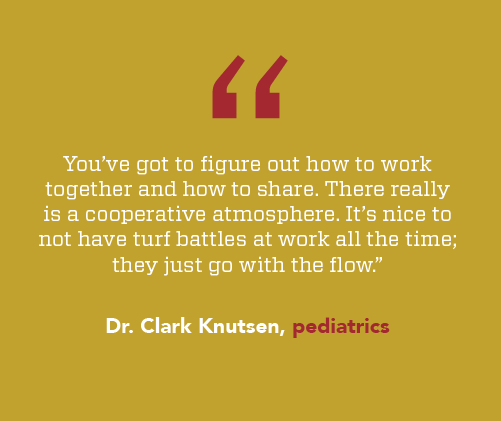
Dr. Williams summarized the adjustment: “The first time I went, trying to round up the equipment to do any sort of procedure would take me an hour at least; nothing moves quickly. I can't practice how I'm accustomed to. I do my best with whatever I have to take care of the patient."
Culture and community in the Caribbean
Practicing medicine in the Caribbean isn’t just about adapting clinically; it’s about embracing cultural differences. English is widely spoken in the Caribbean, but many islands also use other languages, like Spanish, French, Dutch, or Creole. Patients often integrate traditional medicine and herbal remedies alongside modern treatments, and respecting these beliefs is vital for building trust.
Relationships are central. Families often play an active role in care decisions, and patients value personal, face-to-face interactions with their healthcare providers.
“It’s a slower pace that allows them to chat it up at restaurants and hang out with their families,” says Dr. Hodgdon. “That part of the culture is nice.”
Where you'll find Caribbean medical jobs
The Bahamas
The Bahamas are a 100,000-square-mile archipelago that extends over 500 miles of what's considered to be the clearest water in the world. It comprises 700 islands, including uninhabited cays, and has a population of approximately 300,000.
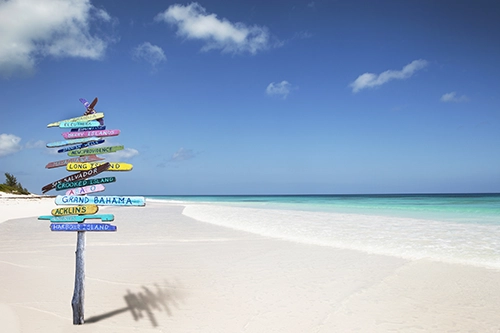
Tourist destinations include Nassau—once ruled by pirates—and the desert-like wildlife sanctuary at Inagua. One of the things the Bahamas is noted for is its pink sand beaches, made of microscopic coral insects called Foraminifera that have a bright pink or red shell. One of the best places to enjoy this sand is Harbour Island, which ranks high on many “best beaches in the world” lists. The island is a haven for fishing, diving, and boating, and boasts many unspoiled pink and white sand beaches.
Barbuda and Antigua
Barbuda and Antigua are considered a “twin-island paradise.” Antigua, known as The Land of 365 Beaches, is one of the smallest countries on earth, and Barbuda is not far behind. Collectively, the population of those islands is under 100,000 people.
With 95 miles of coastline, you can expect there to be beautiful white sand beaches, and you’ll be surrounded by one of the richest marine ecosystems in the Lesser Antilles, with dozens of prime snorkeling spots. With an abundance of islets, coral reefs, and shallow waters with the world-renowned Stingray City, you’ll have a different place to snorkel or scuba dive every single day of the year.
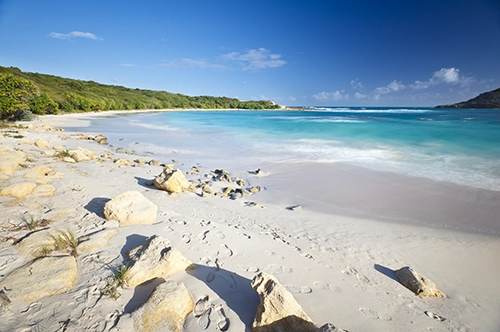
It's almost impossible to have a poor work-life balance in Barbuda and Antigua, as the locals and expats alike describe life there as “calm, with a real sense of community.”
Bermuda
Located 600 miles east of the coast of North Carolina, Bermuda isn’t technically in the Caribbean, but it’s often lumped in with the Caribbean Islands because of its tropical climate, island life, and beautiful beaches.
The best places to see in Bermuda include Horseshoe Bay Beach, a crescent-shaped blush-pink sand beach with dramatic rock formations. The town of St. George, with its cobblestone streets and taffy-colored stone buildings, is the oldest English settlement of the New World and a UNESCO World Heritage Site, which is another must-see.
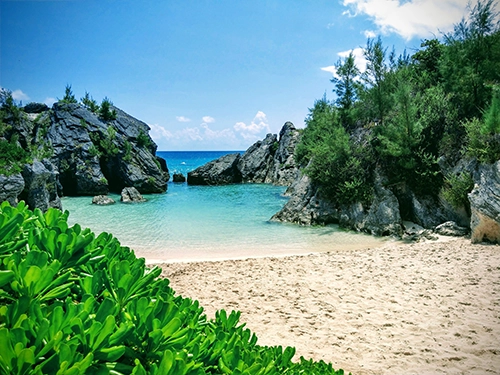
PlanetWare also recommends the Crystal and Fantasy Caves. There, “you can walk on floating pontoons overlooking crystal-clear, azure waters of the subterranean pools, all lit up with a state-of-the-art lighting system to bring out their natural beauty.”
Grand Cayman
Grand Cayman, the largest of the Cayman Islands, offers a blend of tropical beauty and modern comfort that appeals to physicians considering international locum tenens. Known for its crystal-clear waters and white-sand beaches, the island is home to Seven Mile Beach, one of the Caribbean’s most well-known stretches of shoreline. It's perfect for swimming, snorkeling, or simply relaxing between shifts.
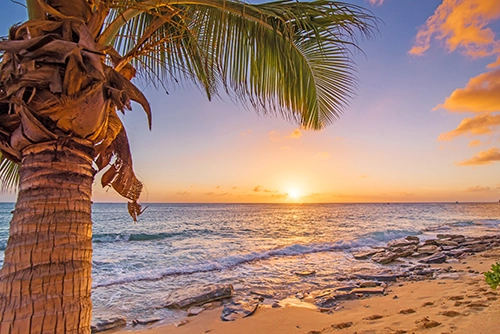
Grand Cayman features vibrant marine life at Stingray City, colorful colonial architecture in George Town, and natural wonders like the Cayman Crystal Caves. Travel Triangle also recommends walking around Queen Elizabeth II Botanic Park, a garden with iguanas, lizards, and native birds. With its stable infrastructure, English-speaking population, and high standard of living, it’s a popular choice for clinicians seeking both adventure and professional ease.
Jamaica
Jamaica is a vibrant Caribbean island known for its lush mountains, reggae music, and warm hospitality. For physicians considering locum tenens work, it offers a unique blend of clinical service and cultural immersion. From the white sands of Negril’s Seven Mile Beach to the beautiful Dunn’s River Falls, Jamaica delivers natural beauty and adventure at every turn.
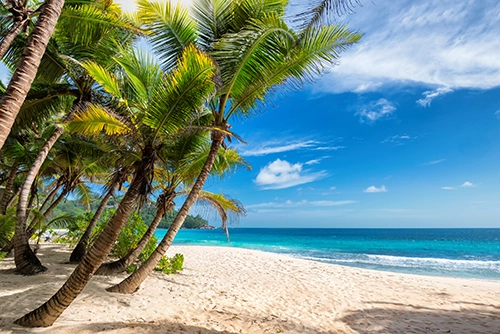
You’ll find rich history in Spanish Town, flavorful cuisine in Kingston, and a laid-back pace that invites you to slow down and recharge between assignments. It’s an ideal destination for providers seeking both purpose and paradise.
Puerto Rico
Situated between the Dominican Republic and the U.S. Virgin Islands, Puerto Rico is known as “the heart and soul of the Caribbean.” The cost of living is low—one of the lowest in the U.S. states and territories—and that, coupled with a more laid-back style of living, means more time and money to explore Puerto Rico’s 700 miles of coastline.
Despite being a part of the U.S., Puerto Rico has its own rich culture with a blend of indigenous (or Boricua), Spanish, and African traditions. You can watch the parade for la Fiesta de los Reyes Magos over the holidays, or check out local artisans, live music, and a carnival atmosphere during the Festival del Frio on the coldest peak in the mountainous municipality of Adjuntas.
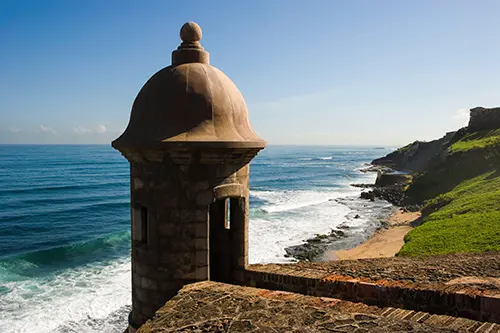
Although English is one of the two official languages, Spanish is predominantly spoken throughout the island.
*NOTE: Locum doctors in Puerto Rico aren’t required to speak Spanish at the facilities where they’ll be working.
U.S. Virgin Islands
St. Croix, St. John, and St. Thomas make up the U.S. Virgin Islands. The islands are located in the eastern Caribbean, 1,100 miles southeast of Miami, and have an average temperature of 77ºF in winter and 83ºF in summer, as does much of the Caribbean.
“They’re beautiful islands. Most of the Caribbean islands are really pretty, the water is stunning, there’s not really much pollution, and the weather, of course, is the same year-round,” says emergency medicine physician Dr. Alan Hogdon. "The island culture is nice. It's a slower pace of living."
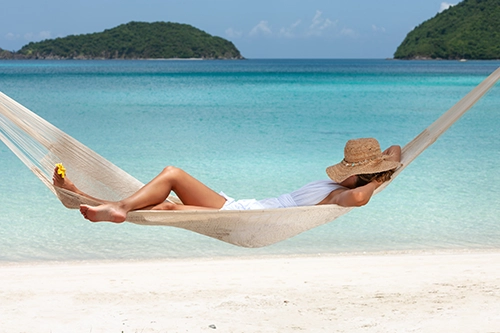
All of the Virgin Islands, like much of the Caribbean, feature breathtaking beaches with emerald water, secluded coves, pristine coral reefs, and untouched rainforests. You’ll also enjoy scrumptious restaurants, world-class shopping, and exciting festivals.
Reclaiming his work-life balance: One doctor found work/life balance in the USVI
Consider the Caribbean for your next locums assignment
“It’s beautiful to live there. The beaches are wonderful. The people are wonderful. They are very friendly and willing to take you right in. They’re gregarious in one-on-one situations. Everyone is very polite. I enjoy taking care of them,” says Dr. Williams. “If you can be flexible, you can enjoy it.”
Interested in learning more about locum tenens jobs in the Caribbean? Give us a call at 1.800.760.3174 or view all of today’s locum tenens job opportunities worldwide.

